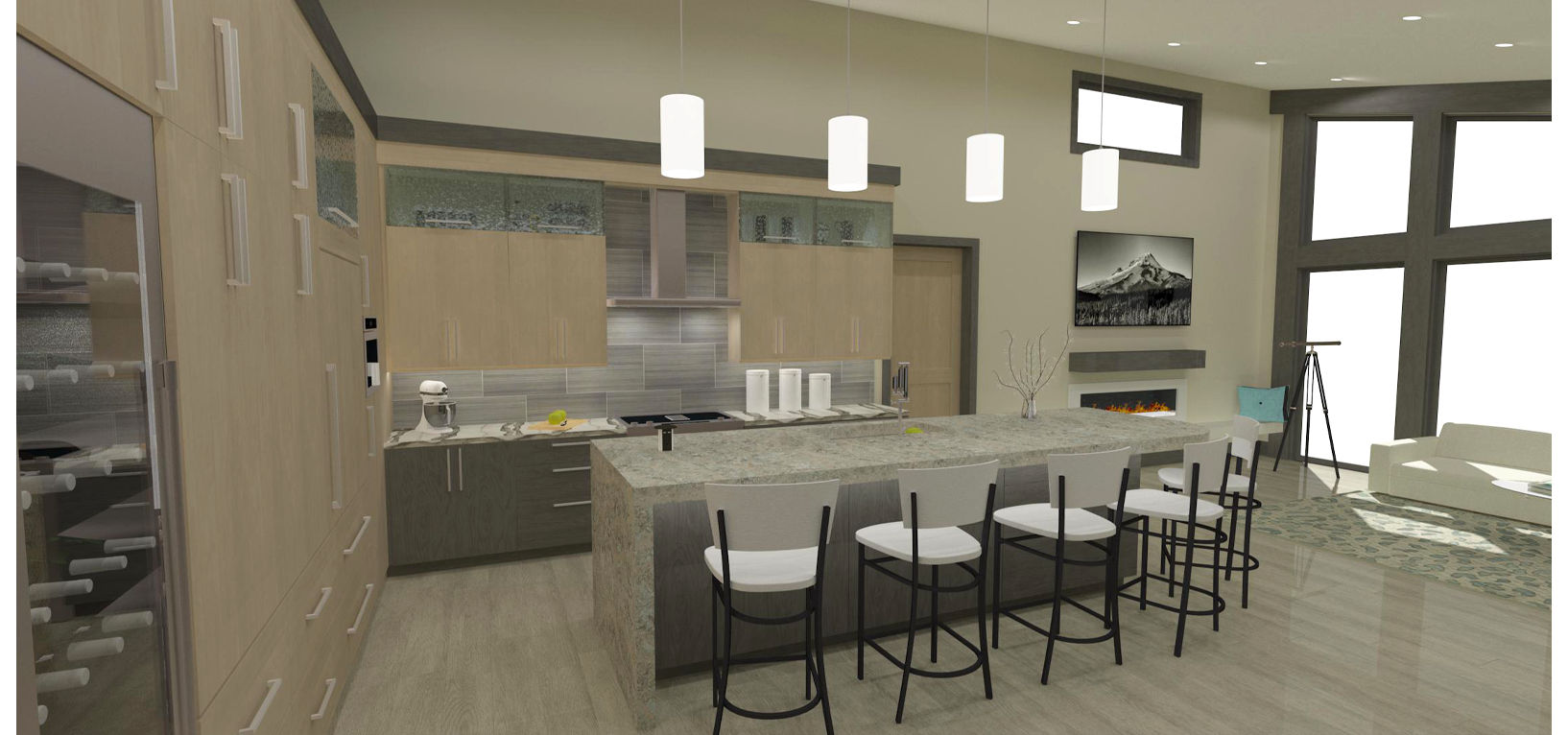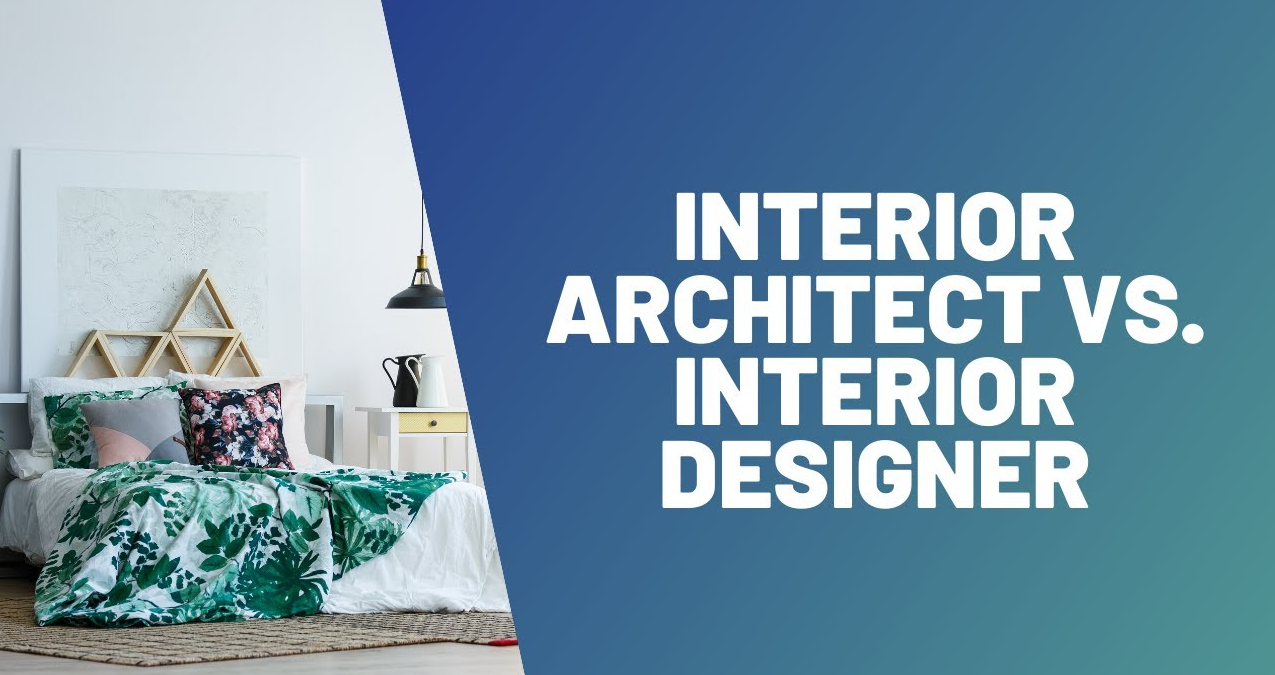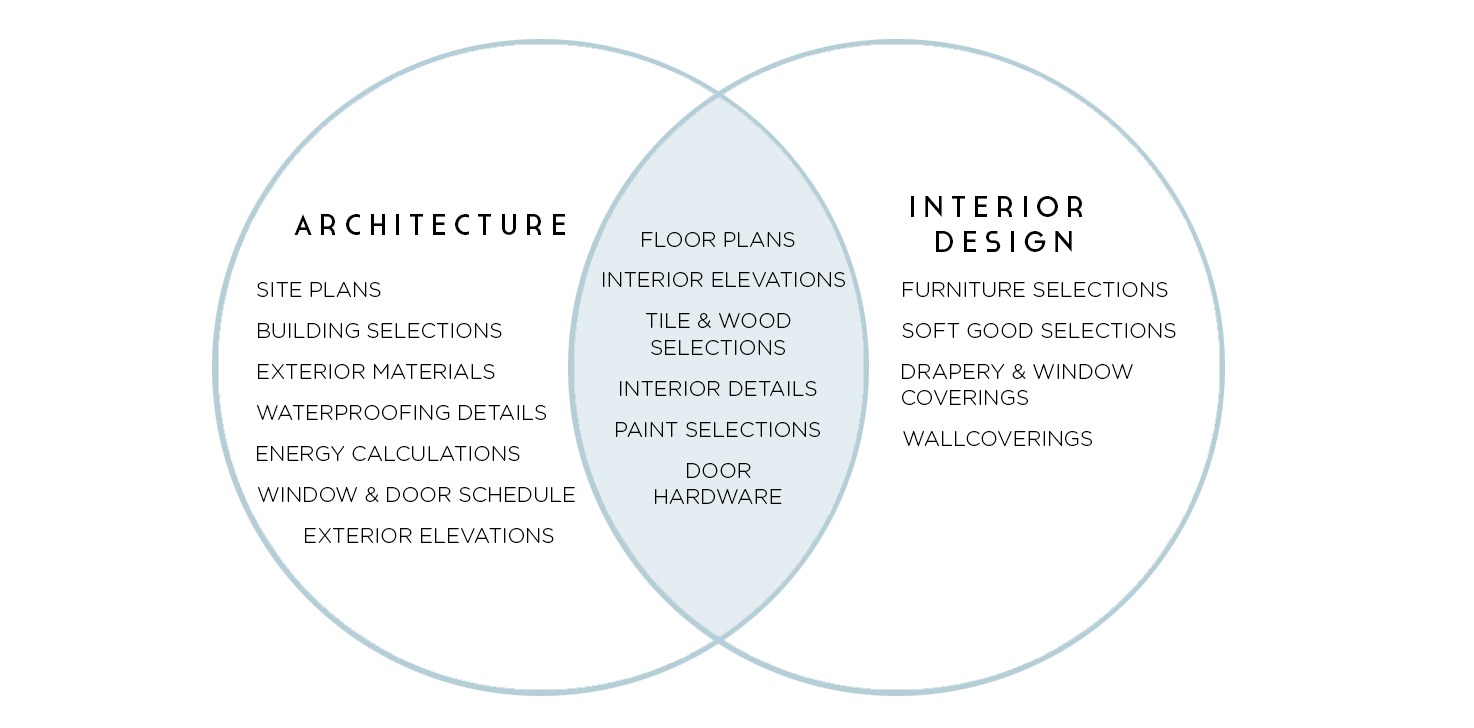Work with a Luxury Residential Architect to Build a Timeless Masterpiece
Work with a Luxury Residential Architect to Build a Timeless Masterpiece
Blog Article
The Art of Balance: Exactly How Interior Design and Home Designer Collaborate for Stunning Results
In the world of home style, striking a balance between aesthetic appeals and functionality is no small accomplishment. This delicate equilibrium is achieved via the unified cooperation between interior designers and designers, each bringing their unique experience to the table. Stay with us as we discover the complexities of this joint process and its transformative effect on home layout.
Understanding the Core Distinctions Between Interior Layout and Home Architecture
While both indoor style and home design play important roles in producing cosmetically pleasing and functional areas, they are naturally various self-controls. It deals with the 'bones' of the structure, functioning with spatial measurements, load-bearing wall surfaces, and roof designs. On the various other hand, interior style is a lot more worried with improving the aesthetic and sensory experience within that framework.
The Synergy In Between Home Style and Interior Decoration
The harmony between home design and Interior Design depends on a shared vision of layout and the improvement of useful aesthetics. When these 2 areas align harmoniously, they can transform a home from common to remarkable. This cooperation requires a deeper understanding of each discipline's principles and the capacity to produce a cohesive, visually pleasing atmosphere.
Unifying Design Vision
Unifying the vision for home architecture and indoor style can produce an unified living space that is both useful and visually pleasing. It advertises a collaborating strategy where architectural aspects complement indoor style elements and vice versa. Hence, unifying the design vision is crucial in mixing architecture and interior layout for spectacular outcomes.
Enhancing Functional Visual Appeals
Just how does the synergy between home architecture and interior style enhance practical aesthetic appeals? Designers lay the foundation with their architectural style, guaranteeing that the area is efficient and useful. An architect might make a residence with big windows and high ceilings.
Relevance of Partnership in Creating Balanced Spaces
The collaboration between indoor developers and designers is pivotal in developing well balanced areas. It brings consistency between layout and style, giving birth to rooms that are not only aesthetically pleasing but also useful. Exploring successful joint approaches can supply insights right into exactly how this harmony can be effectively accomplished.
Harmonizing Style and Design
Balance, a crucial aspect of both Interior Design and architecture, can just really be attained when these 2 fields operate in consistency. This harmony is not just a visual consideration; it affects the functionality, sturdiness, and inevitably, the livability of a space. Interior architects and designers need to recognize each various other's roles, respect their experience, and interact efficiently. They must take into consideration the interaction of structural aspects with decor, the flow of rooms, and the impact of light and color. This joint process leads to a cohesive, well balanced design where every aspect contributes and has an objective to the overall visual. Harmonizing design and style is not just about producing lovely rooms, but about crafting spaces that work flawlessly for their occupants.
Effective Collaborative Strategies

Instance Studies: Successful Assimilation of Layout and Style
Examining a number of study, it emerges exactly how the effective integration of Interior Design and architecture can transform a room. The Glass House in Connecticut, renowned for its minimalistic style, is one such example. Architect Philip Johnson and interior developer Mies van der Rohe teamed up to create an unified equilibrium in between the inside and the framework, resulting in a smooth flow from the exterior landscape to the internal living quarters. One more prototype is the Fallingwater Residence in Pennsylvania. Architect Frank Lloyd Wright and indoor designer Edgar Kaufmann Jr.'s joint efforts result in an amazingly unique residence that mixes with its natural environments. These instance studies underline the extensive impact of an effective design and design cooperation.

Overcoming Challenges in Layout and Design Collaboration
Regardless of the obvious advantages of a successful partnership between Interior Design and architecture, it is not straight from the source without its difficulties. Communication concerns can arise, as both celebrations might use various terminologies, understandings, and strategies in their work. This can result in misunderstandings and hold-ups in task completion. An additional significant challenge is the balancing act of appearances and capability. Architects might focus on architectural honesty and security, while developers concentrate on comfort and style. The assimilation of these purposes can be intricate. In addition, spending plan and timeline constraints usually add pressure, possibly causing breaks in the collaboration. Reliable communication, shared understanding, and concession are important to get rid of these difficulties and achieve a effective and unified cooperation.

Future Fads: The Developing Connection Between Home Architects and Inside Designers
As the world of home design remains to advance, so does the partnership in between designers and indoor developers. The pattern leans towards a more integrated and collective approach, breaking without conventional functions. Designers are no more entirely concentrated on architectural integrity, yet additionally take part in improving aesthetic appeal - Winchester architect. On the other hand, interior designers are embracing technical elements, affecting overall format and capability. This evolving symbiosis is driven by innovations in modern technology and the expanding need for spaces that are not only visually pleasing yet lasting and also useful. The future guarantees a more cohesive, innovative, and flexible approach to home layout, as designers and designers proceed to obscure the lines, cultivating a relationship that genuinely personifies the art of balance.
Final thought
The art of balance in home style is attained via the harmonious collaboration browse around these guys in between indoor designers and architects. An understanding of each other's techniques, efficient communication, and shared vision are vital in producing visually stunning, useful, and welcoming click here for more rooms. In spite of challenges, this collaboration cultivates development and technology in design. As the relationship between home engineers and interior designers develops, it will certainly continue to form future patterns, boosting convenience, performance, and personal expression in our home.
While both indoor layout and home design play vital functions in creating cosmetically pleasing and functional areas, they are inherently various self-controls.The harmony in between home design and interior design lies in a common vision of design and the improvement of useful looks.Merging the vision for home architecture and indoor layout can develop a harmonious living space that is both functional and visually pleasing. Hence, unifying the design vision is vital in blending architecture and indoor design for sensational results.
Exactly how does the harmony between home style and interior style boost functional looks? (Winchester architect)
Report this page